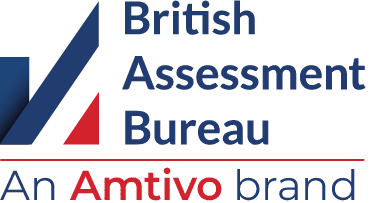Public sector buying in England, Wales and Northern Ireland is changing. The Procurement Act 2023 came into force on 24 February 2025, and it is the biggest reform of UK procurement law in a generation. Its goal is to make the system simpler, fairer, and more accessible for small and medium-sized businesses (SMEs).
What Is Changing?
The Act replaces previous rules (like the Public Contracts Regulations 2015) with one modern, flexible framework which aims to:
- Cut red tape and make tendering quicker
- Encourage innovation through a new “competitive flexible” procedure
- Improve transparency so suppliers can see upcoming opportunities
- Support SMEs and local suppliers with fairer access and faster payments
Since February 2025, all new public procurements will follow the new rules.
If you supply to the NHS, click here to see what new mandatory requirements apply to ISO 9001 and ISO 13485.
Opportunities for SMEs
The Procurement Act aims to improve access for smaller businesses, potentially reducing barriers in public procurement. Here’s how:
1. Easier access to public contracts
SMEs will find it easier to compete for work. Buyers can now design procurement processes that fit the market, rather than applying one-size-fits-all rules. That means more opportunities for innovative, specialist or local suppliers.
2. Faster payments
The Act builds in 30-day payment terms not only for main contractors but throughout the supply chain, helping smaller firms keep a healthy cash flow.
3. Greater visibility
A new central platform (the Find a Tender service) will publish contract notices and performance data, so suppliers can see what’s coming up and learn from past procurements.
Learn how environmental management supports tender success under the new rules. Read our recent article on ISO 14001 and Public Procurement: Meeting Environmental Expectations Under the Procurement Act 2023.
Which Industries Stand to Benefit Most?
While every SME can take advantage, some sectors will see particularly strong opportunities, such as:
- Digital & IT Services: Especially for software, data, and cybersecurity projects
- Construction & Facilities Management: Where subcontractors can now expect faster payments
- Professional Services: Consultants, trainers, marketing, and auditing firms
- Health & Wellbeing Providers: SMEs offering occupational health, fitness, and community services
- Environmental & Sustainability Services: Waste, decarbonisation, and energy efficiency specialists
How SMEs Can Prepare
Here’s how businesses could position themselves to win under the new regime:
1. Strengthening management systems
Public buyers increasingly expect proof that suppliers manage quality, safety and data responsibly. That’s where ISO certifications come in:
- ISO 9001 (Quality Management): Demonstrates consistent processes, customer focus, and continual improvement.
- ISO 45001 (Occupational Health & Safety): Shows commitment to worker wellbeing and legal compliance – valuable in construction, logistics and on-site services.
- ISO 27001 (Information Security): Essential if you handle sensitive or personal data – especially critical for digital, professional or healthcare sectors.
- Cyber Essentials: A government-backed scheme proving your business follows basic cybersecurity hygiene – often a prerequisite for public sector IT contracts and a great complement to ISO 27001.
2. Reviewing tender readiness
- Register on Find a Tender and set up alerts
- Prepare standard documents: policies, certifications, accounts and references
- Keep ISO certificates current and accessible
- Make sure team members can clearly explain how systems deliver quality, safety and security
3. Building social value into offerings
Authorities now score bids partly on public benefit, such as sustainability, community impact and SME support. Businesses could think about how they contribute to: local employment, apprenticeships, carbon reduction, or wellbeing initiatives.
Where Certification Can Offer a Competitive Edge
ISO and Cyber Essentials certifications aren’t mandatory, but they can build trust and confidence with public buyers. They show that a business is already working to verified, internationally recognised standards, and can save time in pre-qualification.
- ISO 9001 supports strong contract performance and continual improvement.
- ISO 45001 helps demonstrate care for people and compliance with health and safety law.
- ISO 27001 and Cyber Essentials demonstrate that effective measures are in place to protect data and systems, supporting compliance with stricter transparency and exclusion rules.
The Procurement Act 2023 represents a major opportunity for SMEs. With more flexible processes, faster payments and a focus on fairness, the door to public sector contracts is opening wider than ever.
Aligning your business with ISO 9001, ISO 45001, ISO 27001 and Cyber Essentials might not only meet buyer expectations. You could also stand out as a reliable, high-quality and security-conscious partner.
Why Accredited Certification Matters
When it comes to public sector contracts, not all certificates carry the same weight. Buyers are increasingly looking for accredited certification – that is, certification issued by a body accredited by the United Kingdom Accreditation Service (UKAS) or an equivalent national body. Accredited certification provides independent assurance that your management system truly meets the requirements of the ISO standard and is audited to the highest, internationally recognised benchmarks.
For contracting authorities, this gives confidence that your processes are robust, reliable and verified by a trusted third party, thereby reducing risk in supplier selection. For SMEs, it’s a mark of credibility that sets you apart from competitors who may hold unaccredited or self-declared certifications. In a public tender environment where trust, transparency and integrity are central, accredited certification isn’t just a badge, it’s proof that your business meets the standards buyers can rely on.
Ready to Get Started?
British Assessment Bureau helps thousands of organisations achieve accredited ISO certification and Cyber Essentials. Let us help your business prepare for the opportunities the Procurement Act 2023 brings.
Contact us today to find out more.




